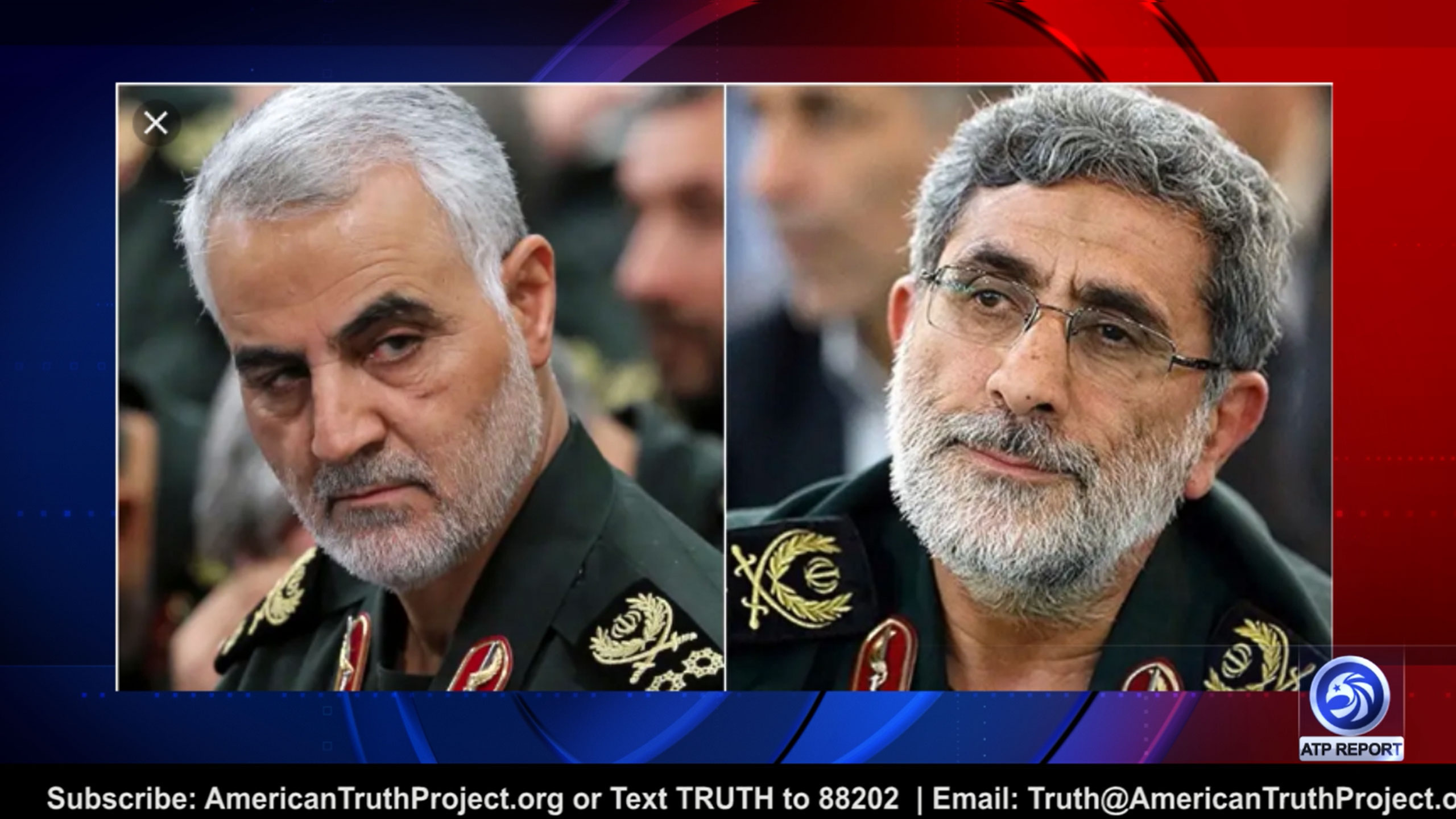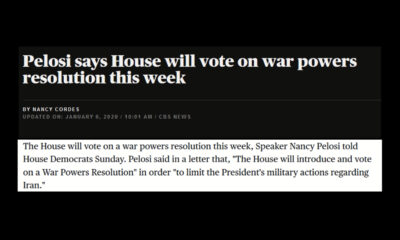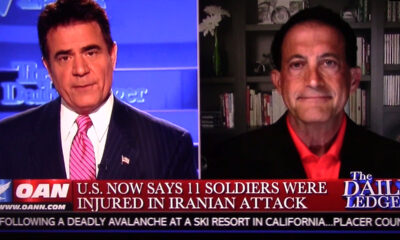Articles
Gas Price Surge Sparks New Iranian People’s Protest
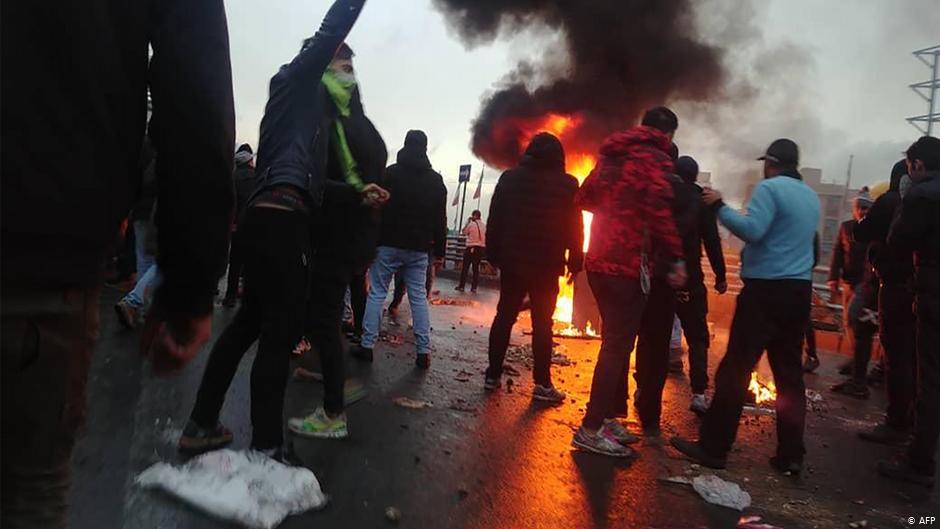
This past weekend, Iran’s Islamic regime announced that the nation’s gas price had been raised 300 percent since Friday, November 15. Suddenly after this announcement, millions of protestors gathered in the streets across the country. For years now, the Iranian people have been continuing to rally against the regime’s unpopular policies, which have reached record lows of miserable feelings on the quality of life indexes. So, will the regime finally break under this added pressure?
Since these protests and rallies began, and spread to more than 115 cities in Iran, the regime’s Supreme Leader, along with the Iranian president himself, have called the protestors “hooligans,” and began to shoot them down. As of today, about 200 have been left dead and thousands injured, by reports. Additionally, more than 3,000 citizens were arrested. What remains to be seen is if this latest uprising will cause any big movement in Iranian power.
The regime of the mullahs is facing trouble now from three sides. First, President Trump altered the international diplomatic landscape for Iran. In the second front, the Iranian people are rising up against economic hardship and Islamic tyranny. And third, the mullahs and other regime leaders are all having to watch their own backs, at risk from each other, as they become more desperate to stay alive.
On one front, Trump withdrew the United States from the JCPOA Iran nuclear deal, and has been tightening sanctions, along with other moves to counter Iran’s police state and terror activities. After the deal withdrawal, Iran’s foreign minister, Mohammad Javad Zarif, sought to create disputes between America and the European states. Europe wants to continue the JCPOA deal with Iran, for its own gain. Iran’s regime hoped that by widening cracks in U.S. and E.U. diplomatic relations, Iran could loosen Trump’s maximum pressure policies against the Islamic regime.
It seems American pressure by Trump is having an effect. The gas price increase is an indicator that the Islamic regime is becoming desperate for funds. But the people are not tolerating it. Their action in the streets is becoming such a grave threat to the regime, that the internet is being shut down in the country.
Internally, the Islamic regime of Iran is divided into competing, paranoid factions. They are all coming under pressure from each other now, as well. The self-proclaimed moderates in Iran hold the presidency and a considerable minority in Iran’s parliament. They are losing their power as a consequence of the nuclear deal falling apart. They are desperate to maintain the propaganda narrative that if they fall, then the regime’s hardliners would eventually come to power. And then they say, the civilized world would find the hardliners impossible to deal with.
Unlike most Middle Eastern countries, Iran has an election every 4 years. That creates an illusion that a sort of democracy operates for the people to decide the balance of power in Iran. Foreign minister Zarif and his faction push a false narrative, that the Iranian people support the current moderates and reformists inside the regime, against the hardliners. However, the people are tired of suffering under corrupt and harsh Islamic rule. They are not buying the regime’s fear propaganda. Along with Trump’s pressure, and the paranoid regime infighting, Iranians may be using their own force to bring real change.
Kaveh Taheri (Twitter: @TaheriKaveh), American Truth Project contributor, is a Turkey-based Iranian Human Rights researcher and journalist who has worked exclusively on Middle East. Kaveh, who was a former political prisoner in Shiraz, had been sent to prison for his writings and statements on his websites and weblogs in Iran and fled the country through Turkey to save his life.
Articles
Have We Forgotten What Happened On 9/11?
Articles
Sharia in the U.S. Judicial System?
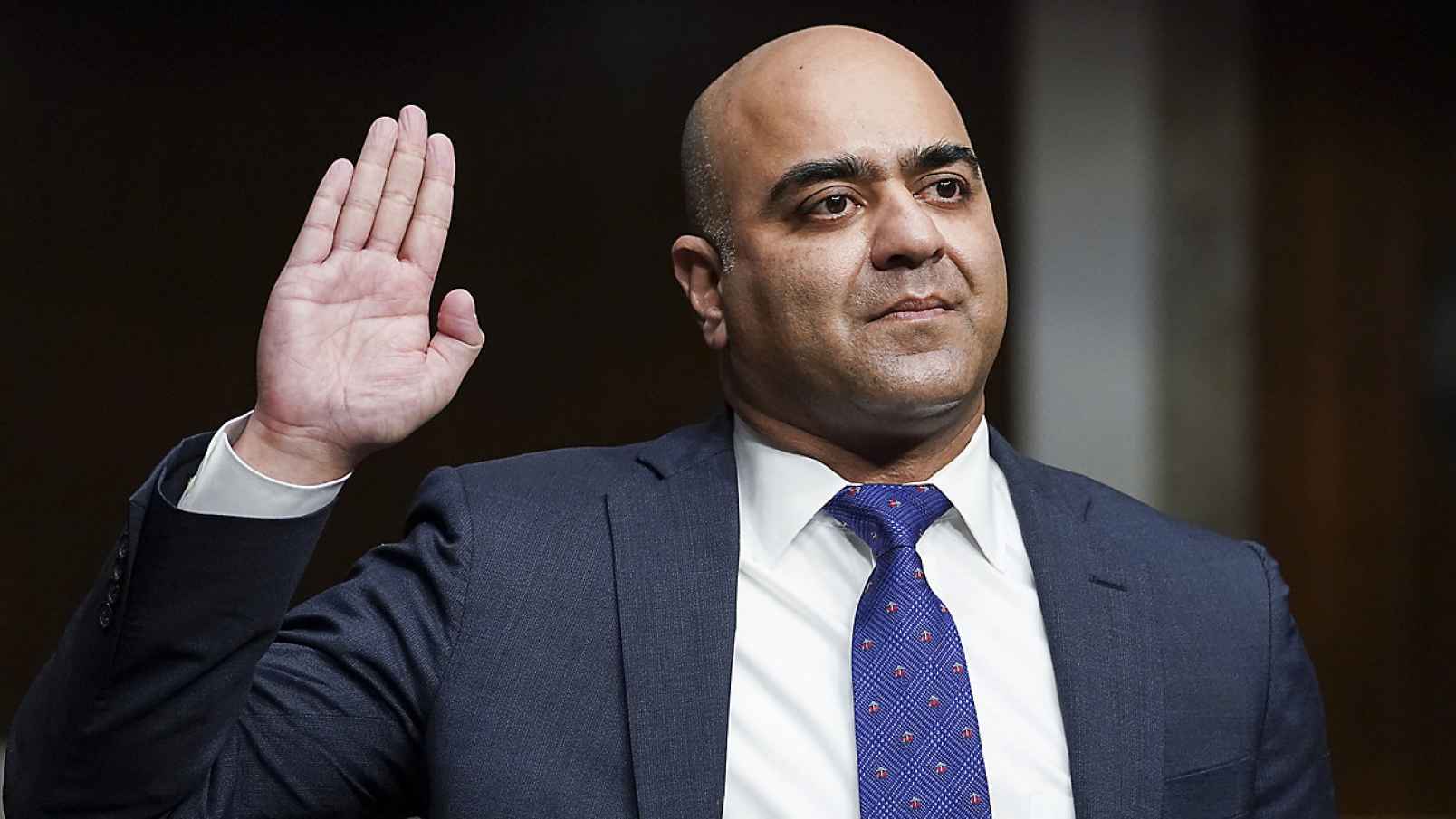
The U.S. Senate’s recent confirmation of Zahid Quraishi as America’s first Muslim federal judge to a lifetime position on the District Court of New Jersey raises some concerning questions.
First and foremost, there is the question of his faith. Does it matter if Zahid Quraishi is a Muslim? The Left would, of course, maintain that raising the Muslim identity of Quraishi is racist, bigoted and “Islamophobic.” But those who understand the reality of Sharia – and the fact that Islam is not a race — understand that this matter is more complicated than what might first meet the eye.
It may very well matter if Quraishi is not just a Muslim “by name” – or just a “secular Muslim” by birth heritage. Indeed, if, as an adult adherent to Islam, he devoutly recites the Shahada — “There is no god but Allah, and Muhammad is the Messenger of Allah” – then Quraishi’s Muslimness could matter very much. That’s because it could indicate whether or not Quraishi would ever uphold aspects of Sharia – Islamic law – in his legal rulings.
As a survivor of Sharia law, I can tell you: Sharia matters — and in the most horrendous and painful of ways.
It is vital to understand that in Islam, Allah’s Law is supreme for Muslims, above all other laws and legal systems. And that poses a problem for America when Islam resides on its territory, because Sharia is completely incompatible with the U.S. Constitution and the foundations of a free society.
Quraishi’s relationship to Islam, therefore, matters a great deal — seeing that his new position entails significant power and influence in America.
So let’s dig a little bit deeper on Quraishi.
The Hamas-linked Council on American-Islamic Relations (CAIR) surprisingly did not come out and cheer Quraishi’s appointment — as one might have expected them to do. Instead, the Muslim “civil rights” organization appeared to be quite furious about him. Zahra Billoo, head of CAIR’s San Francisco branch, issued a statement affirming that she “would much rather have a white Christian judge with progressive values… It’s not enough that he is Muslim. In fact, it’s insulting.”
It appears that the problem for Billoo and CAIR is that Quraishi is not a Muslim from an apparent “list” of “20 to 50 Muslims who have been in the fight” for “social justice.” One unnamed Muslim politician who complained to Slate magazine about Quraishi’s appointment echoed the same theme: “We don’t know what his stances are on civil rights because you can’t find one article or anything that he’s written publicly about the Muslim struggle in the last 20 years post-9/11.”
For those concerned about Quraishi’s potential ties to Sharia, this negative disposition from the “Sharia camp” toward the Muslim judge might appear to be good news. But is it?
CAIR’s concern about Quraishi’s supposed lack of support for “progressive values” appears to be a good sign in light of CAIR’s own record of opposing counterterror measures and slandering opponents of jihad and Sharia tyranny. However, CAIR’s disposition toward Quraishi tells us little, if anything, about the key issue at stake: does the judge hold Islamic values or not?
The narrative takes another peculiar twist when we examine what transpired during Quraishi’s questioning before the Senate Judiciary Committee: When asked by Committee Chair, Democrat Senator Dick Durbin: “What do you know about Sharia law?” Quraishi answered that he knew “nothing about Sharia.“
Really?
Quraishi knows “nothing” about Islam or Islamic Law?
Christine Douglass-Williams has commented on Quraishi’s dubious answer:
“Virtually everyone knows something about the Sharia. In his position, Quraishi is likely to know a lot, and was probably fibbing, and not in an intelligent way, either. It isn’t possible that a man of his standing, who ‘has served as a military prosecutor and Army captain in Iraq, as an assistant U.S. Attorney who has tried cases of public corruption, organized crime and financial fraud, and as a white-collar criminal defense lawyer’, would know ‘NOTHING’ about Sharia.”
True indeed.
What makes the matter even more peculiar is that when one pulls up Quraishi’s questionnaire answers for the Senate Judiciary Committee, one finds that he is mentioned as a “Muslim” many times in his “Honors and Awards” list. So Quraishi is praised, rewarded and held in acclaim by the Muslim community for his achievements in light of his Muslimness, but he personally doesn’t know anything about Islamic law at all?
Could it be that Quraishi might actually not be the incidental Muslim he postures as being? Could it be that he has been recognized and awarded by important prominent Muslim organizations because they gauged that, among other things, he actually is somewhat of an adherent Muslim after all?
Is it possible that CAIR might really not be as upset as it is claiming to be about Quraishi’s appointment? Or maybe it is upset, but not for the reasons it has given? Could it also be that certain players involved in this narrative are engaging in some form of taqiyya – the command in Islam for Muslims to deceive non-Muslims?
Would it also be out of bounds to ask: even if Quraishi is not an adherent Muslim, is it legitimate to be concerned that he one day could become one?
It is vital to stress at this point that Islam is not just a “religion” the way that Christianity and Judaism are religions. Islam is much more than a “faith.” For example, like Judaism, Islam has a legal system — but Islamic Law extends far beyond any Judaic (or even secular) legal system. Sharia embodies all the commands of Allah and all the examples of Muhammad-as divine law that must be implemented in all areas of life.
Qur’an 33:21 is just one verse of many that confirms that Muhammad is “an excellent pattern” for Muslims to follow. It would do well for people to keep in mind that the “excellent” examples that Mohammed set for his followers included the following: marrying a six-year-old girl, A’ishah, and having sex with her when she was nine (Sahih al-Bukhari 5134); encouraging rape of female captives (Qur’an 4:24); stating that women are stupid (Qur’an 2:282) and that hell is comprised of mostly women (Bukhari 29); commanding men to beat their wives (Qur’an 4:34); and being merciless to a woman who had been beaten so brutally that her bruise was green (Bukhari 5825).
Muhammad also disparaged black people (Bukhari 7038). He murdered between 600 and 900 Jews in one battle, and then distributed the captive women as sex slaves (Ibn Ishaq, pp. 464, 511-512).
With some of these matters in mind, the question surfaces: would or could an American Muslim federal judge consider such material as a basis for his rulings? According to Islamic law, a Muslim judge must do so. Sharia mandates that no true Muslim is obligated to obey the laws of a non-Muslim country. Qur’an 33:1 commands to “not obey the disbelievers and the hypocrites.” Qur’an 4:60 says that those who “refer legislation” to the non-Muslims are led “far astray.” And Qur’an 9:3 says that “Allah is disassociated from the disbelievers, and [so is] His Messenger.” According to Islamic tradition, the revelation of that last verse allowed Muhammad to break the Treaty of al-Hudaibiyah.
Let us be clear: an American judge who follows Muhammad’s example can take an oath to uphold the U.S. Constitution, and not really mean it. In fact, Muhammad instructs such a judge exactly what to do in this situation: “if I take an oath and later find something else better than that, then I do what is better and expiate my oath.” (Bukhari 5518)
The supremacy of Islamic Law over all other laws still applies today. The Islamic website International Shariah Movement is run by certified Islamic scholars. Its post “Obey the Law of the Land?” cites Qur’an 33:1.
Under Sharia, if a woman is raped, a Muslim judge must disregard any forensic or non-witness evidence, because Qur’an 24:13 requires “four male witnesses” for a rape conviction.
A beaten woman may also easily be denied divorce, because Qur’an 4:34 commands that “Men are in charge of women,” and so may “strike them.”
That is exactly what a Muslim judge in an Iranian Islamic court told me personally when I was a 15-year-old child bride, desperate for a divorce to escape the beatings. In fact, a beaten woman who leaves Islam must be hunted down and murdered, according to Islamic law, because Muhammad said, “Whoever changed his Islamic religion, then kill him.” (Bukhari 6922)
With all these realities in mind, it is clear that if we cannot at least ask Judge Zahid Quraishi some questions regarding his adherence, or non-adherence, to Islamic law, or even understand that the issue of Quraishi’s Muslimness is an important one to address, then America is in deep trouble.
As an individual who suffered under Sharia, and was able to escape its monstrous clutches, I strongly encourage my fellow Americans to ask the right questions in this vital – and troubling – narrative about America’s new federal judge.
Articles
Iran Elects Mass Murderer as Next President
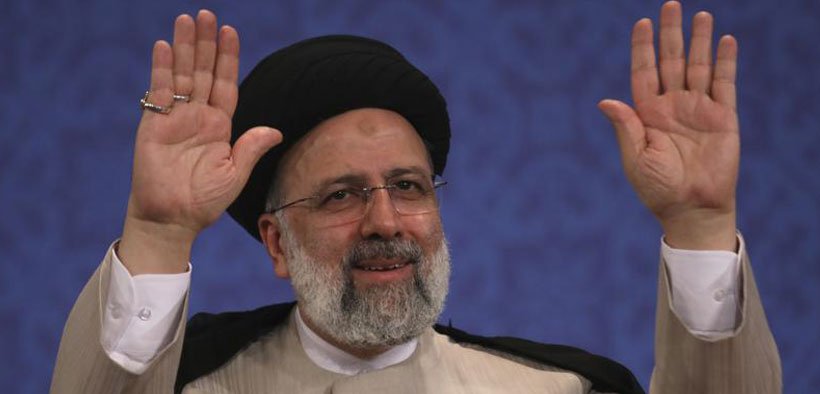
The ‘election’ for president is over in Iran. The grand ayatollah handpicked Ebrahim Raisi who was then ‘elected’. He’s not just a hardline jihadist, but he’s a mass murderer and a big-time one. And more importantly, he’s very proud of his background.
He’s accused by the world of having personally supervised the trials and executions of somewhere between 5,000 and 40,000 Iranians in the 1980s. He has personally been sanctioned by most of the world, including the United States, who cannot even legally talk to him.
Meanwhile, Raisi calls himself a defender of human rights when asked about the mass executions. The guy is a world-class war criminal. He ran the death panel that sentenced and executed tens of thousands of political prisoners at the end of the 1980s. He is now the leader of the world’s most notorious state sponsor of terrorism.
The first thing we have to know about Ebrahim Raisi is that these charges of mass murder as far as the Iranian mullahs are concerned, are not a problem but rather they are a bonus. It’s not that they picked him in spite of his terrible record. They picked him because of his terrible record.
Domestically, the ayatollah is sending a message to the Iranian people who remain discontented in large part with the Islamic regime. The message is simply put, “ you are not going to be able to dissent. There will be no ability to protest. Anybody who expresses any kind of public disagreement, it’s very clear what kind of treatment they’re going to get with Ebrahim Raisi as the President of Iran.”
Keep in mind, Raisi was not elected. He was selected. He was selected by the supreme leader of Iran, who is the real power in the country, and he is going to execute the policies of the supreme leader. The supreme leader’s disposition toward his own people and toward the world is revealed by the person he selects to be the President of Iran.
By picking Raisi, Ayatollah Khamenei is not only showing that he’s going to crack down harshly on dissent within Iran, but he’s showing that he understands that with Biden’s handlers running the United States, that the United States is weak, is not going to stand up to him and this is his time to step up Iran’s support for terrorism worldwide, supporting Hamas, supporting Hezbollah, supporting Palestinian Islamic Jihad.
The Iranian regime has also in the past supported al-Qaida and the Taliban, and other jihadi groups as well as and this is much less known. It’s clear that Iran understands that leftism is corrosive to Western civilization, and they want to destroy Western civilization. Therefore Iran will support both the leftists and the Islamists around the world who are anti-America and anti-Israel.
From now on, we can expect to see increased belligerence on the part of Iran. And Raisi’s ascension to the presidency means that Iran is going to be strutting around and sponsoring terrorism around the world and cracking down on its own people within the country.
By Barry Nussbaum, Son of Auschwitz survivors, Founder American Truth Project, Foreign and Domestic Policy Commentator





